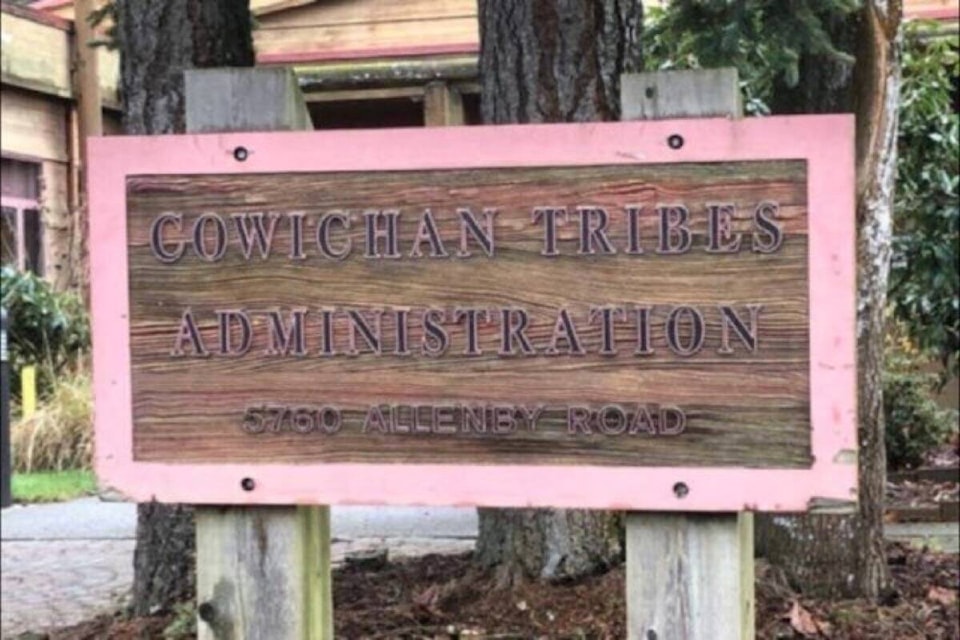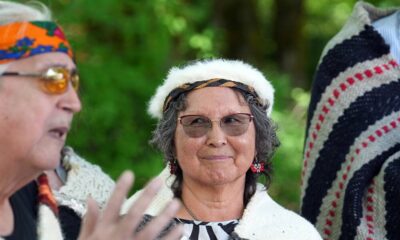Education
Cowichan Tribes Votes on Landmark Education Law for Children

The Cowichan Tribes is taking a significant step toward educational sovereignty with a historic vote on a new Education Law, officially known as Squw’utsun’a’lh Sniw’ ’u tu Stutul’na’mut. Beginning on September 22, 2023, members of the Cowichan community have the opportunity to adopt a law that emphasizes traditional Quw’utsun cultural teachings for the education of their children, known locally as smun’eem.
Chief Cindy Daniels (Sulsulxumaat) highlighted the importance of this vote, stating, “This vote is another pivotal moment for our Nation to come together to build a future where our families and culture thrive.” She emphasized the historical challenges faced by the community, including the impacts of colonization and residential schools, which denied the rights to language and cultural practices. The new Education Law aims to rectify these past injustices by empowering the community to educate its children in alignment with their cultural values.
In January 2022, Cowichan Tribes citizens ratified an education jurisdiction agreement and law-making protocol with the Canadian government. This agreement formally recognized the Nation’s authority to govern K-12 education. It established a framework for creating laws, developing courses, and certifying teachers, enabling the delivery of education that is grounded in Quw’utsun culture and teachings.
Framework for Educational Governance
The proposed Education Law, Squw’utsun’a’lh Sniw’ ’u tu Stutul’na’mut, not only affirms the inherent authority of the Cowichan Tribes but also establishes the Quw’utsun Syuw’entst Lelum as the governing body for educational programs and initiatives. This law prioritizes community accountability, lifelong learning, and land-based education while ensuring that students with exceptionalities receive necessary supports.
Roxanne Harris, executive director of Quw’utsun Syuw’entst Lelum, remarked, “We are deeply grateful to all who worked together in the spirit of nuts’a’maat shqwaluwun (one heart and one mind) to develop this Education Law.” She pointed out that under this law, students will continue to meet provincial education standards while benefiting from a curriculum enriched by the Hul’q’umi’num’ language and cultural teachings.
The Cowichan Tribes has made considerable advancements in governance, as seen in the recent ratification of the Cowichan Tribes Custom Election Law and the Snuw’uy’ulhtst tu Quw’utsun Mustimuhw u’ tu Shhw’a’luqw’a’ i’ Smun’eem, which relates to child and family law. The introduction of the Education Law marks another milestone in the exercise of the Tribe’s right to govern according to its own laws and cultural values.
Impact on Community and Future Generations
According to Stephanie Atleo, director of Governance for Cowichan Tribes, this progress is critical in overcoming the historical trauma inflicted by the Indian Act and colonial governance. “Education is central to this journey, as it ensures that the knowledge of our ancestors guides and lives on in the generations to come,” she stated.
The outcome of this vote will play a crucial role in determining how the Cowichan Tribes will shape the future of education for their children, allowing for a system that is not only reflective of their rich cultural heritage but also aligned with contemporary educational standards. As the community votes, the hope is that this new law will foster a thriving environment for cultural revitalization and self-determination.
The voting process is an essential part of this transformative journey, reinforcing the Cowichan Tribes’ commitment to reclaiming authority over their educational practices and ensuring that their children receive an education that honors their identity and traditions.
-

 Politics4 weeks ago
Politics4 weeks agoSecwepemc First Nation Seeks Aboriginal Title Over Kamloops Area
-

 World5 months ago
World5 months agoScientists Unearth Ancient Antarctic Ice to Unlock Climate Secrets
-

 Entertainment5 months ago
Entertainment5 months agoTrump and McCormick to Announce $70 Billion Energy Investments
-

 Science5 months ago
Science5 months agoFour Astronauts Return to Earth After International Space Station Mission
-

 Lifestyle5 months ago
Lifestyle5 months agoTransLink Launches Food Truck Program to Boost Revenue in Vancouver
-

 Technology3 months ago
Technology3 months agoApple Notes Enhances Functionality with Markdown Support in macOS 26
-

 Lifestyle3 months ago
Lifestyle3 months agoManitoba’s Burger Champion Shines Again Amid Dining Innovations
-

 Top Stories2 months ago
Top Stories2 months agoUrgent Update: Fatal Crash on Highway 99 Claims Life of Pitt Meadows Man
-

 Politics4 months ago
Politics4 months agoUkrainian Tennis Star Elina Svitolina Faces Death Threats Online
-

 Sports5 months ago
Sports5 months agoSearch Underway for Missing Hunter Amid Hokkaido Bear Emergency
-

 Politics5 months ago
Politics5 months agoCarney Engages First Nations Leaders at Development Law Summit
-

 Technology5 months ago
Technology5 months agoFrosthaven Launches Early Access on July 31, 2025





















